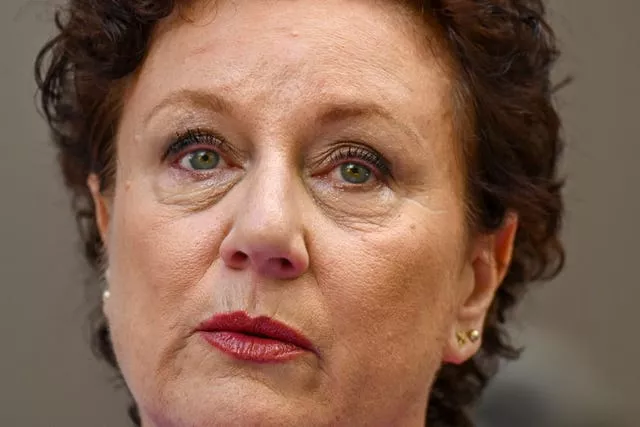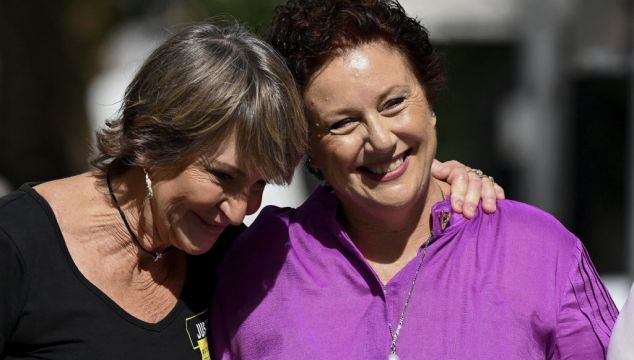A woman who spent 20 years in prison for killing her four children has had the convictions overturned by an Australian appeal court.
Kathleen Folbigg, 56, was released from prison in June after being pardoned at the New South Wales state government’s direction following new scientific evidence that her four children may have died from natural causes as she had insisted.
The pardon was seen as the quickest way of getting her out of prison before an inquiry into the new evidence recommended the New South Wales Court of Appeals consider quashing her convictions.
Applause filled the courtroom, and Ms Folbigg wept after Chief Justice Andrew Bell overturned three convictions of murder and one of manslaughter.
He said: “While the verdicts at trial were reasonably open on the evidence available, there is now reasonable doubt as to Ms Folbigg’s guilt.
“It is appropriate Ms Folbigg’s convictions be quashed.”
Ms Folbigg thanked her supporters, lawyers and scientists outside court for clearing her name.
She said: “For almost a quarter of a century, I faced disbelief and hostility. I suffered abuse in all its forms. I hoped and prayed that one day, I would be able to stand here with my name cleared.
“I am grateful that updated science and genetics have given me answers of how my children died.
“The system preferred to blame me rather than accept that sometimes children can and do die suddenly, unexpectedly and heartbreakingly.”

Her lawyer, Rhanee Rego, said their legal team would now demand “substantial” compensation from the state government for the years spent in prison.
The inquiry that recommended the pardon and acquittal was prompted by a petition signed in 2021 by 90 scientists, medical practitioners and related professionals that argued significant new evidence showed the children likely died of natural causes.
Her first child, Caleb, was born in 1989 and died 19 days later in what a jury determined to be the lesser crime of manslaughter.
Her second child, Patrick, was eight months old when he died in 1991. Two years later, Sarah died at 10 months, and in 1999, her fourth child,d Laura, died at 19 months.
Prosecutors argued she smothered them and she was sentenced to 30 years in prison in 2003.
Evidence was discovered in 2018 that both daughters carried a rare CALM2 genetic variant, which could have caused their sudden deaths.
Experts also testified that myocarditis, an inflammation of the heart, was also a possible cause of Laura’s death. In contrast, expert evidence said an underlying neurogenetic disorder possibly caused Patrick’s sudden death.
The scientific explanations for the three siblings’ deaths undermined the prosecutors’ case that the tragedies established a pattern of behaviour that pointed to Caleb’s probable manslaughter.







